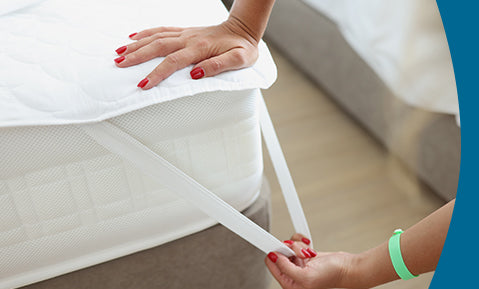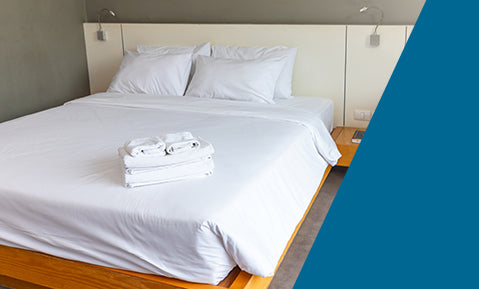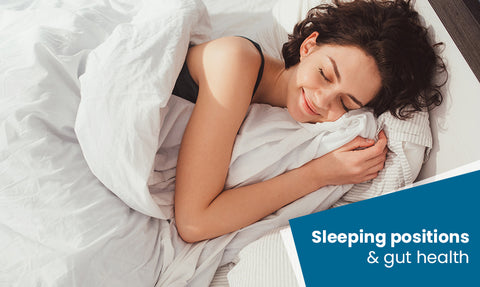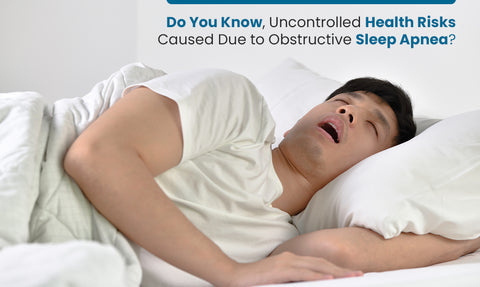
So, we all know that covid19 was a beast in its time. Many people have cleaned their life by playing with covid but unfortunately, there are many remedies that can lead to winning a trophy against the covid pandemic. And a good sleep cycle is one of them. Your sleep can be a very big factor in fighting against a dangerous virus. A good night's sleep strengthens the immune system, lowering the chance of being infected and improving results for people fighting a virus. On the other hand, poor sleep impairs the body's defensive system and leaves people more susceptible to viral infection. So, here are some points
“The importance of sleep for overall health and well-being and how it can be affected by stress and anxiety”

Sleep is essential for overall health and well-being. During sleep, the body has an opportunity to repair and regenerate, and the brain is able to consolidate memories and process information. Adequate sleep is also important for maintaining a healthy immune system, regulating mood and emotions, and supporting cognitive function.
However, stress and anxiety can have a negative impact on sleep. When we are under stress, our bodies release hormones such as cortisol and adrenaline, which can interfere with the body's natural sleep-wake cycle and make it more difficult to fall asleep and stay asleep. Additionally, anxious thoughts and worries can make it hard to relax and quiet the mind, further disrupting sleep.
Chronic sleep deprivation can have serious consequences, including raised risk of chronic diseases such as obesity, diabetes, and cardiovascular disease, as well as mental health issues such as depression and anxiety. Getting enough good-quality sleep is essential for maintaining overall health and well-being.
“The potential impact of the pandemic on sleep, including changes in sleep patterns and difficulties with sleep”

So, the COVID-19 pandemic has had a profound impact on sleep for many people. The stress and uncertainty of the situation, as well as changes to daily routines and lifestyles, can all contribute to changes in sleep patterns and difficulties with sleep.
Some common ways in which the pandemic may affect sleep include:
- Increased stress and anxiety: The pandemic has brought about a great deal of stress and anxiety for many people, which can have a negative impact on sleep.
- Changes to daily routines: The pandemic has disrupted many people's daily routines, including work, school, and social activities. This can make it difficult to establish a consistent sleep schedule and maintain good sleep hygiene.
- Changes to sleep environment: For many people, the pandemic has brought about changes to their sleep environment, such as working from home or sharing a bedroom with someone. These changes can affect the quality of sleep.
- Increased use of technology: The increased use of technology for work, school, and socializing during the pandemic can also disrupt sleep. The blue light emitted by screens can suppress the production of melatonin, a hormone that helps regulate the sleep-wake cycle.
These are just some of the ways in which the pandemic may affect sleep. It is important for people to pay attention to their sleep and seek help if they are experiencing difficulty sleeping.
“The relationship between sleep and the immune system, and how poor sleep can affect the body's ability to fight off infections”

There is a strong relationship between sleep and the immune system. Adequate sleep is important for maintaining a healthy immune system and supporting the body's ability to fight off infections.
During sleep, the body produces cytokines, which are proteins that help fight off infections and inflammation. Inadequate sleep can reduce the production of cytokines, making the body less able to fight off infections. Additionally, poor sleep can weaken the immune system's response to vaccines, making them less effective.
On the other hand, good sleep can support the immune system and help the body fight off infections. Getting enough sleep can also help to reduce the risk of developing chronic diseases, which can weaken the immune system and make it more susceptible to infections.
“The role of good sleep hygiene in maintaining healthy sleep, including tips for creating a conducive sleep environment and establishing a consistent bedtime routine”
Good sleep hygiene is important for maintaining healthy sleep. There are several things you can do to create a conducive sleep environment and establish a consistent bedtime routine.
To begin, ensure that your home is darker, quiet, and chilly. A comfortable mattress and pillow can also help promote healthy sleep. It's also a good idea to limit your exposure to electronic screens (such as TVs, laptops, and smartphones) in the hour leading up to bedtime, as the blue light emitted by these devices can interfere with your body's natural sleep-wake cycle.
Establishing a consistent bedtime routine can also be helpful. This might include winding down before bed with activities such as reading or listening to calming music, avoiding caffeine and heavy meals in the evening, and avoiding naps during the day.
In general, the key to good sleep hygiene is to create a consistent, relaxing environment and routine that will signal to your body that it's time to sleep. By following these tips, you can help ensure that you get the restful, restorative sleep you need to function at your best.
“The potential consequences of chronic sleep deprivation, include an increased risk of chronic diseases and mental health issues”
Chronic sleep deprivation, or not getting enough good-quality sleep on a regular basis, can have serious consequences for both physical and mental health.
Some of the potential consequences of chronic sleep deprivation include:
- Increased risk of chronic diseases: Chronic sleep deprivation can increase the risk of developing chronic diseases such as obesity, diabetes, and cardiovascular disease. This is because sleep plays a role in regulating the body's metabolism and helping to maintain a healthy weight.
- Mental health issues: Sleep is important for regulating mood and emotions, and chronic sleep deprivation can increase the risk of developing mental health issues such as depression and anxiety.
- Cognitive impairment: Sleep is also important for supporting cognitive function, including memory, concentration, and problem-solving skills. Chronic sleep deprivation can impair these functions and make it more difficult to learn and remember information.
- Accidents and injuries: Sleep deprivation can also impair judgment and coordination, increasing the risk of accidents and injuries. For example, drowsy driving is a major cause of traffic accidents.
“The importance of seeking help for sleep problems, and the availability of resources such as sleep specialists and sleep clinics”

If you are experiencing difficulty sleeping, it is important to seek help. Sleep problems can have serious consequences for your health and well-being, and addressing them can improve your quality of life.
There are many different resources available for people who are experiencing sleep problems. Some possible options include:
- Talking to your doctor: If you are experiencing sleep problems, one of the first steps you can take is to talk to your doctor. Your doctor can help assess your sleep and determine the cause of your problems. They can also provide guidance on how to improve your sleep and recommend other resources, if necessary.
- Seeing a sleep specialist: If your sleep problems are severe or persistent, you may benefit from seeing a sleep specialist. Sleep specialists are healthcare professionals who have specialized training in diagnosing and treating sleep disorders. They can provide a more detailed evaluation of your sleep and recommend specific treatments or therapies.
- Visiting a sleep clinic: Sleep clinics are facilities that are specifically designed to diagnose and treat sleep disorders. They typically offer a range of services, including sleep studies, 0behavioral therapy, and medication management. Your doctor can refer you to a sleep clinic if they believe it would be helpful.
- Using online resources: There are many online resources available for people who are experiencing sleep problems. These can include websites, blogs, and forums that provide information and tips for improving sleep, as well as online tools and apps that can help you track your sleep and identify patterns.
In summary, there are many different resources available for people who are experiencing sleep problems. If you are having difficulty sleeping, it is important to seek help and take steps to improve your sleep. If you opt to get a night of good sleep, then you are gonna get some awesome benefits.
And your immune system will be boosted over time, which will help you fight COVID!












